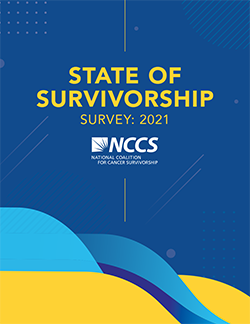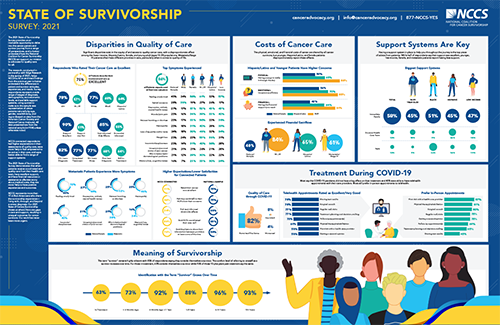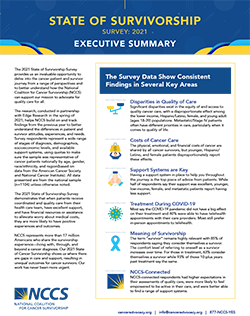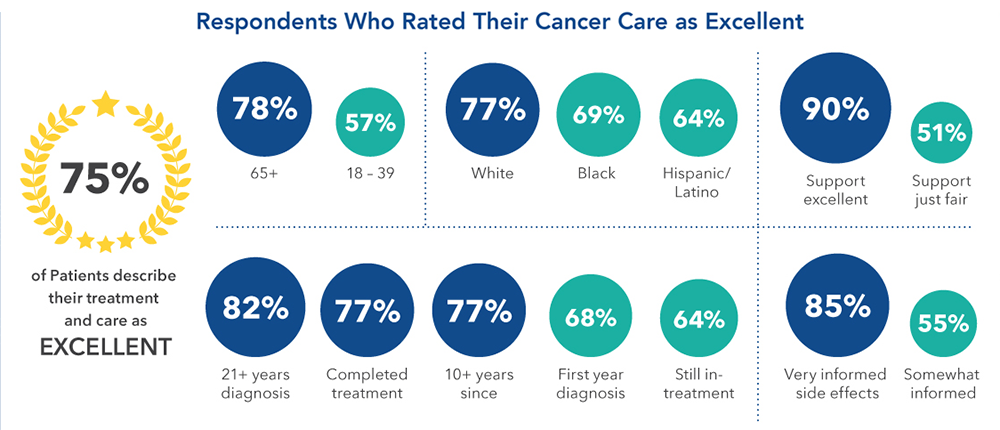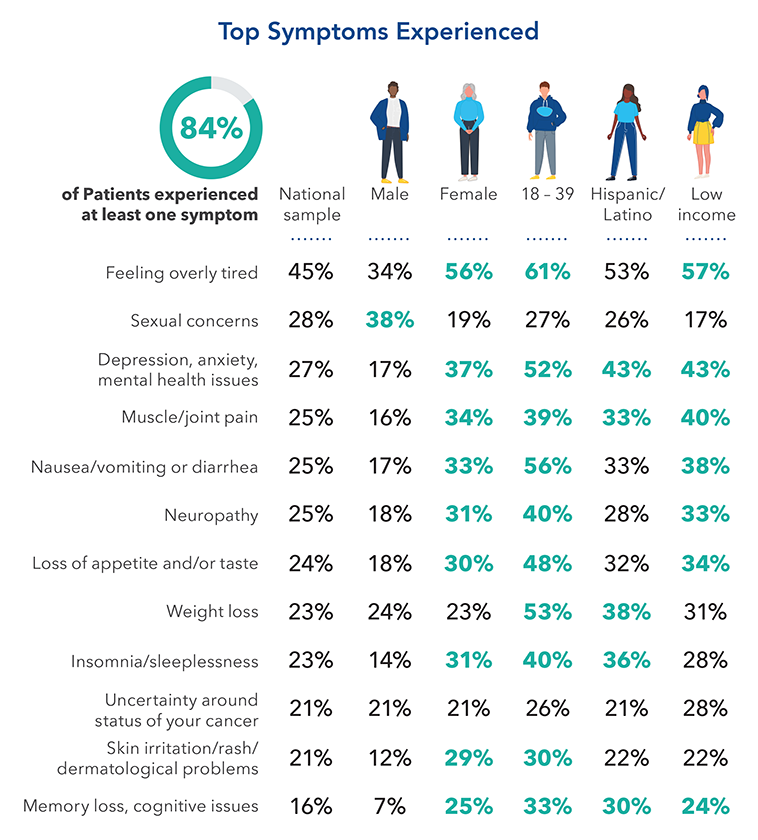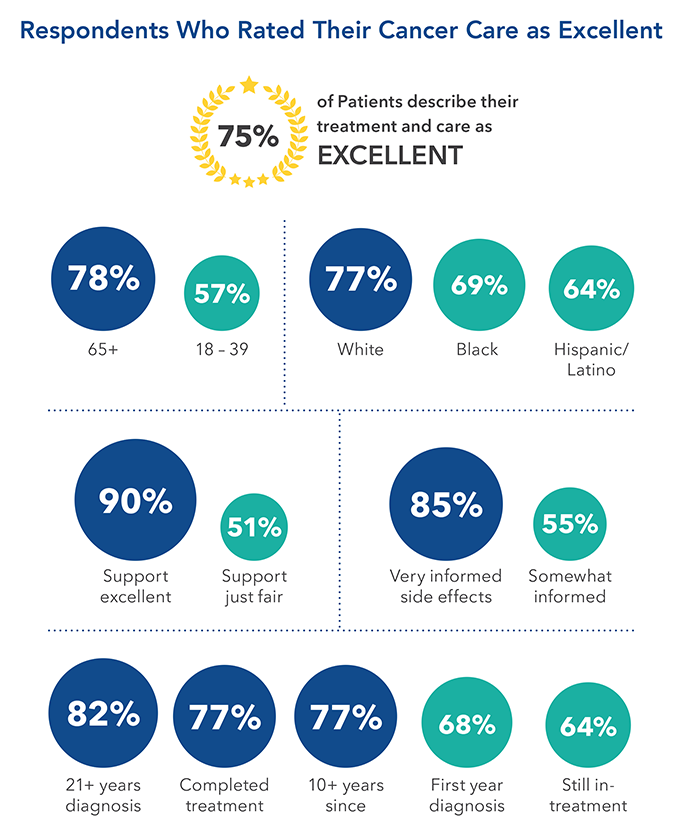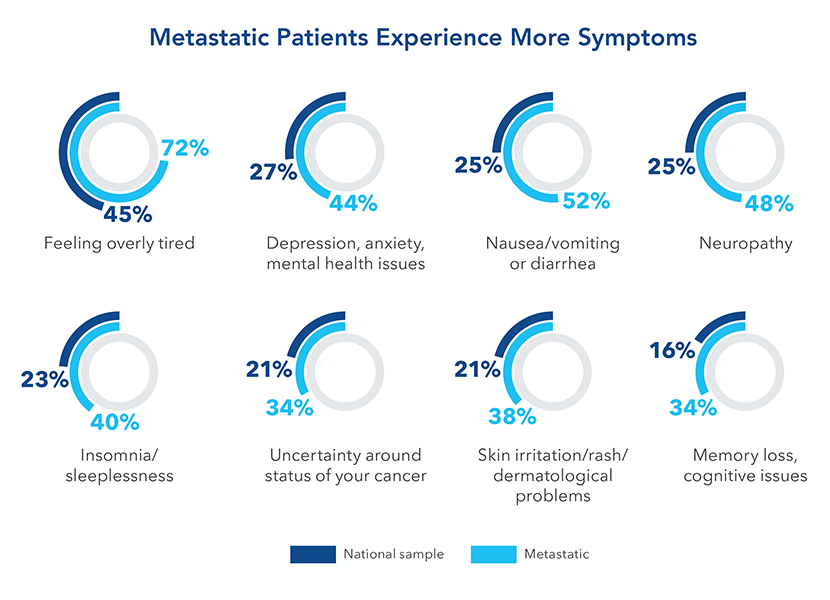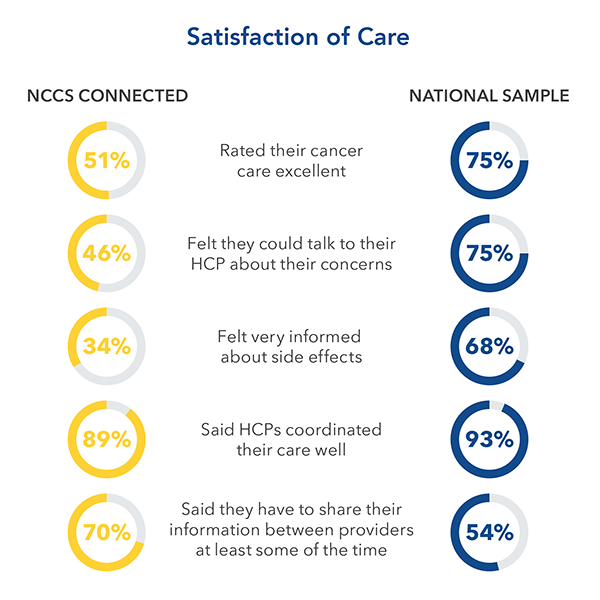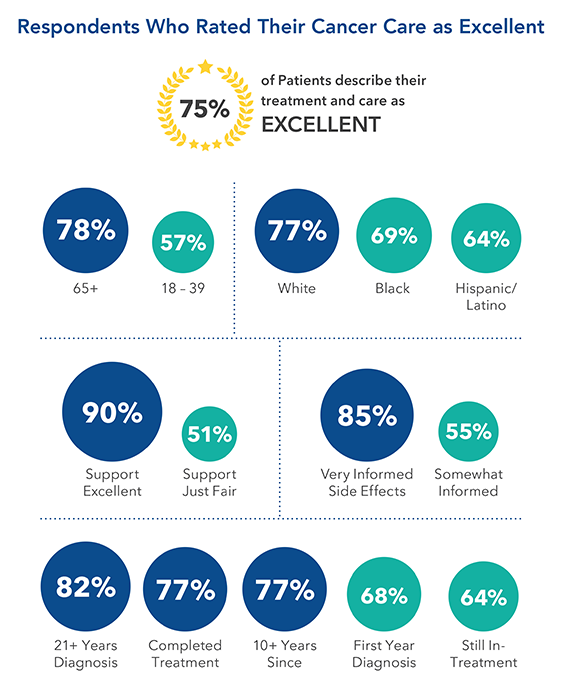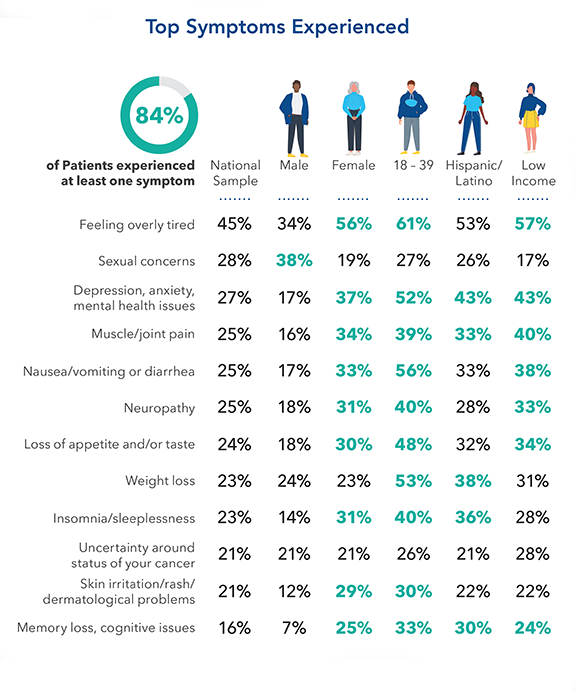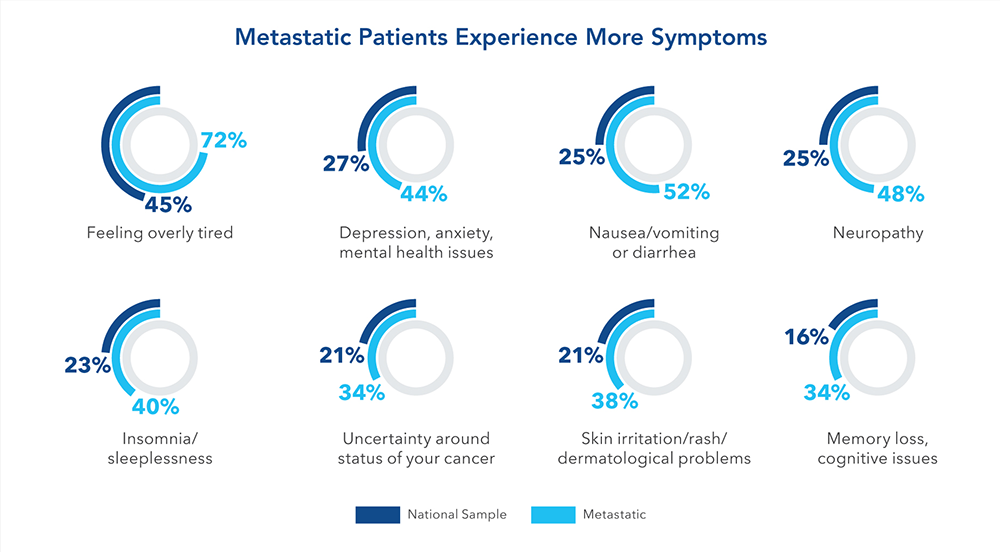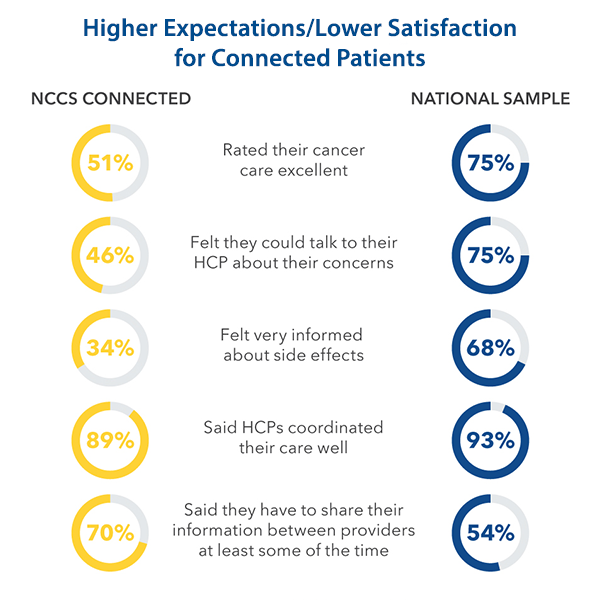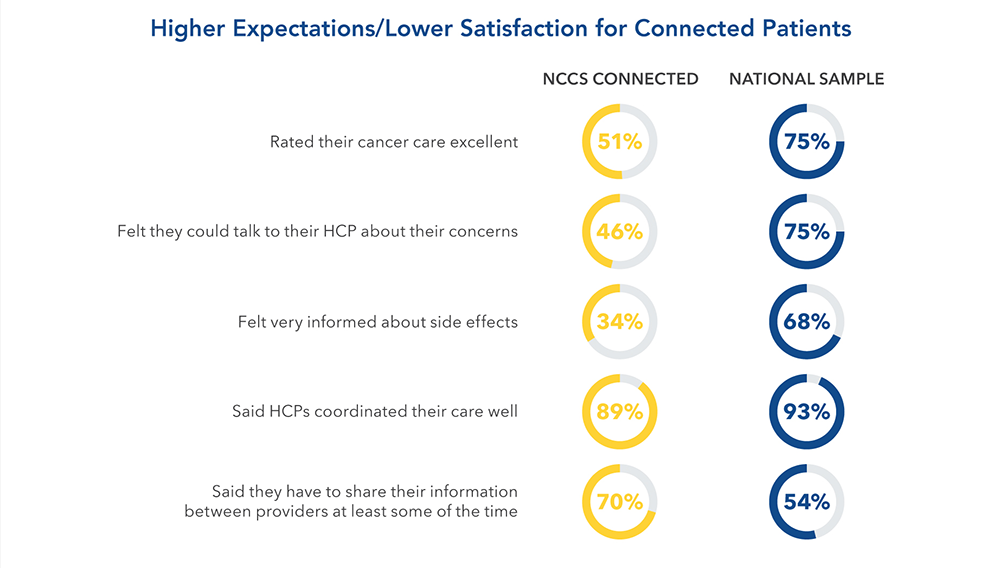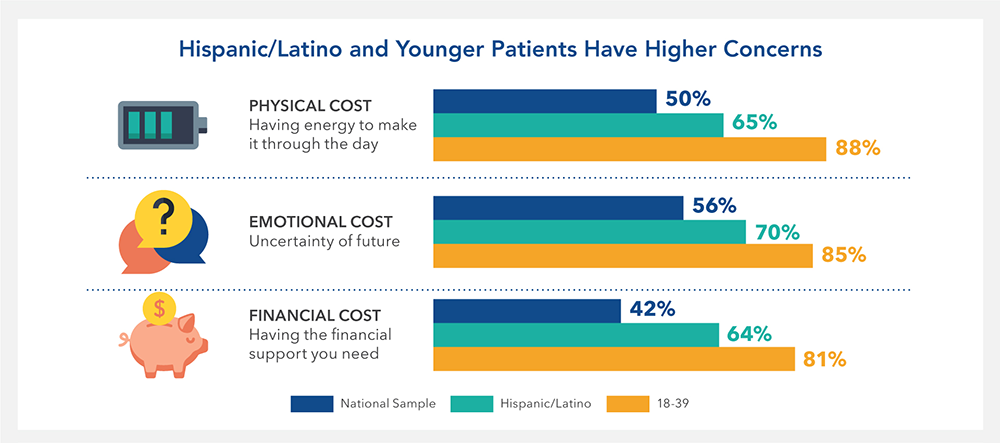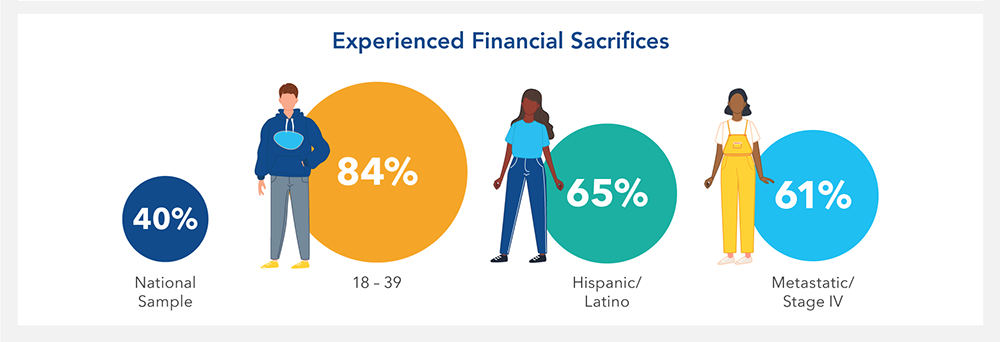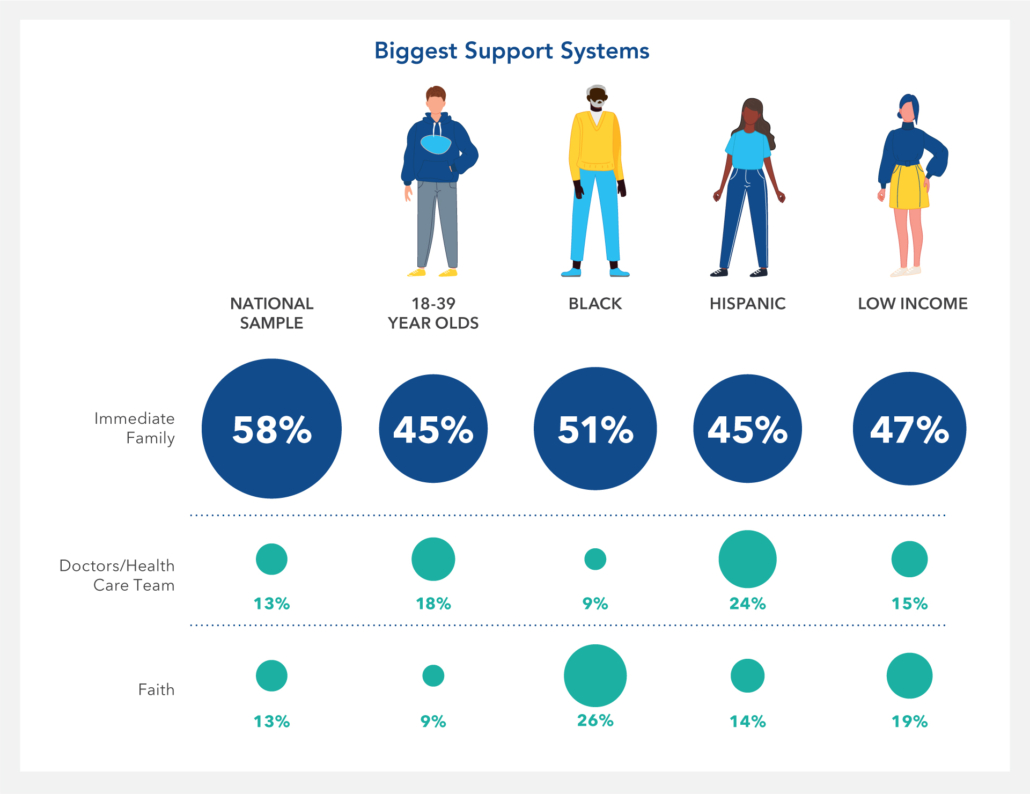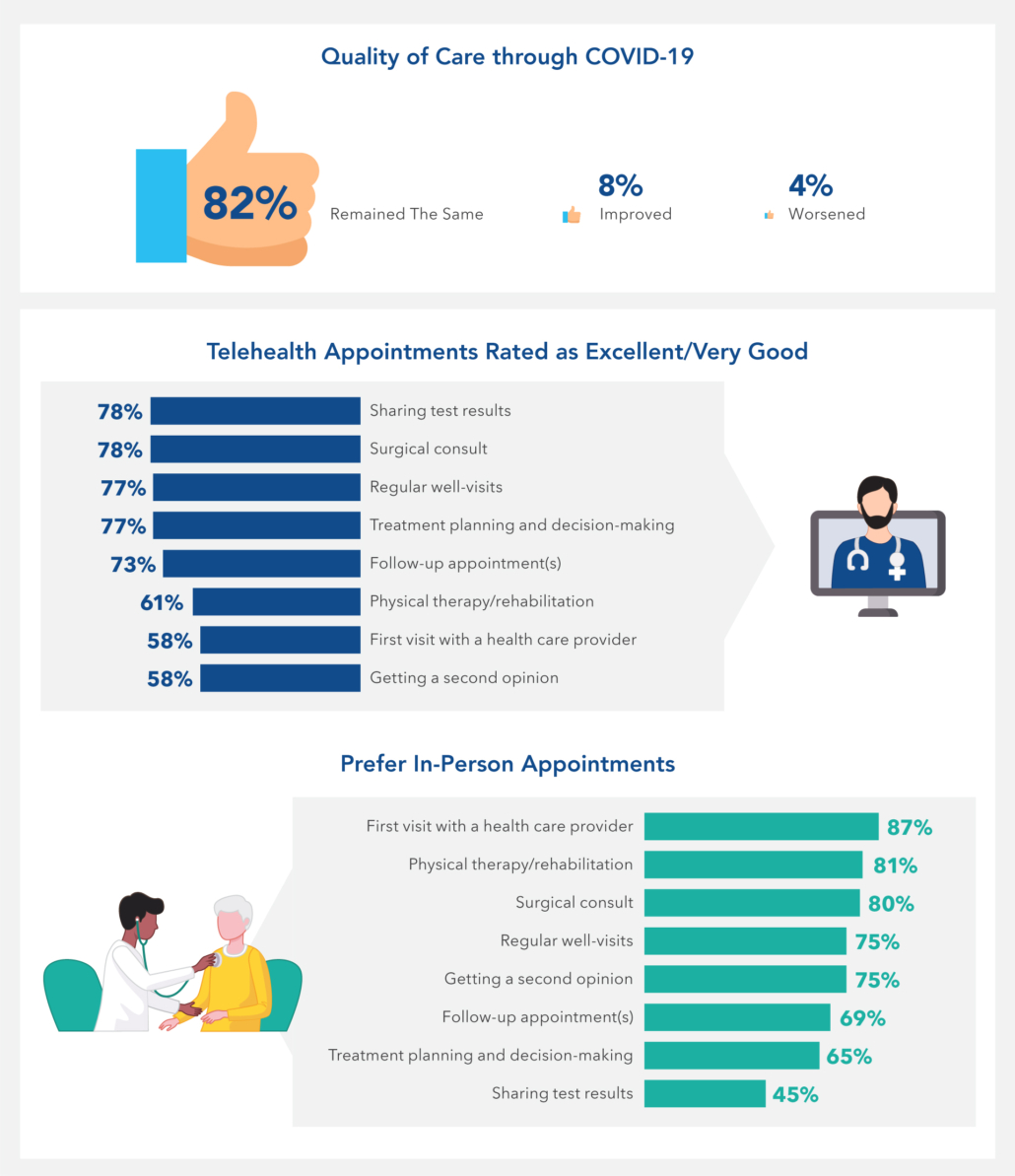Introduction
The 2021 State of Survivorship Survey provides us an invaluable opportunity to delve into the cancer patient and survivor journey from a range of perspectives, and to better understand how the National Coalition for Cancer Survivorship (NCCS) can support our mission to advocate for quality care for all.
The research, conducted in partnership with Edge Research in the spring of 2021, helps NCCS build on and track findings from the previous year to better understand the differences in patient and survivor attitudes, experiences, and needs. The survey was conducted through 16 in-depth interviews and a nationwide survey of 1,604 patients and survivors, 500 of whom have a connection to NCCS.
Survey respondents represent a wide range of stages of diagnosis, demographics, socioeconomic levels, and available support systems, using quotas to make sure the sample was representative of cancer patients nationally by age, gender, race/ethnicity, and region. NCCS-connected respondents had higher expectations in their assessments of quality care, were more likely to feel empowered to be active in their care, and were better able to find a range of support systems.
The 2021 State of Survivorship Survey demonstrates that when patients receive coordinated and quality care from their health care team, have excellent support, and have financial resources or assistance to alleviate worry about medical costs, they are more likely to have positive experiences and outcomes.
Survey Web Briefing
Survey Report Sections
Disparities in Quality of Care
The Costs of Cancer Care
Support Systems Are Key
Treatment During COVID-19
Meaning of Survivorship
Disparities in Quality of Care
The Costs of Cancer Care
Support Systems Are Key
Treatment During COVID-19
Disparities in Quality of Care
Most cancer patients describe their cancer treatment and care as excellent and believe their health care providers (HCPs) were approachable, respectful, and coordinated their care well. Though for many, their threshold is making it through their treatment. But there are consistent disparities, with younger (ages 18-39), Hispanic/Latino, female, and low-income patients having consistently poorer experiences. There are also differences between metastatic patients and those still in treatment, compared with those who have completed treatment. Metastatic/Stage IV patients often have different priorities in care, particularly when it comes to quality of life.
The Costs of Cancer Care
To most, the word “cost” has a financial association. This is, of course, true for cancer patients as 47% of our survey respondents cited the cost of medical care as a concern. But the cost of cancer goes far beyond the financial and insurance concerns for many respondents. A variety of physical and emotional health concerns are also major concerns. Half of our respondents were concerned about simply having enough energy for the day. Over half cited uncertainty about the future as their top concern. For patients with advanced cancer, the emotional strain that comes with an uncertain future is the top concern for 75% of respondents.
The physical, emotional, and financial costs of cancer are shared by all cancer survivors, but younger, Hispanic/Latino, and female patients disproportionately report these effects.
Support Systems Are Key
Having a support system in place to help you throughout the journey is the top piece of advice from patients. While half of respondents say their support was excellent, younger, low-income, female, and metastatic patients report having less support.
Notably, perceptions of the quality of care align closely with levels of support. Among patients who rate the quality of their cancer care as excellent, 64% also indicated they had excellent support. On the other hand, among patients who rated their cancer care as fair or poor, only 4% felt they received excellent support. Similarly, of those who felt very informed about side effects, 62% said they received excellent support, while only 22% of patients rated their support as excellent when they felt they were not well-informed about side effects.
Treatment During COVID-19
As it did with everything else around the world, the COVID-19 pandemic affected care and treatment for cancer patients. Even though cancer centers made significant changes to protocols to ensure patients’ safety, the vast majority of cancer patients (82%) believe their quality of care remained the same as before the pandemic, and 8% said their care was better. The COVID-19 pandemic shifted many health care appointments into the virtual space. Four in ten respondents who had an appointment during the pandemic did so via telehealth services. Most still prefer in-person appointments to telehealth.
Meaning of Survivorship
Our definition of a survivor—from the time of diagnosis for the balance of life — has been the norm in and beyond the cancer community for 35 years. Over time, we have seen a wide spectrum of sentiment about what it means to be a survivor. We know that some people with a cancer diagnosis do not feel comfortable thinking about themselves as a survivor. So, in our 2021 State of Survivorship Survey, we decided to ask how respondents felt about the word “survivor.”
The term “survivor” remains highly relevant with 85% of respondents saying they consider themselves a survivor. The comfort level of referring to oneself as a survivor increases over time. For those in treatment, 63% consider themselves a survivor while 93% of those 10-plus years past treatment say the same.
Request Survey Data
The National Coalition for Cancer Survivorship (NCCS) accepts requests from researchers and advocacy organizations wanting to use the State of Survivorship data set to support their research and practice for the purpose of improving quality of care for those touched by cancer.
This program is supported by an educational grant from Bristol-Myers Squibb.

